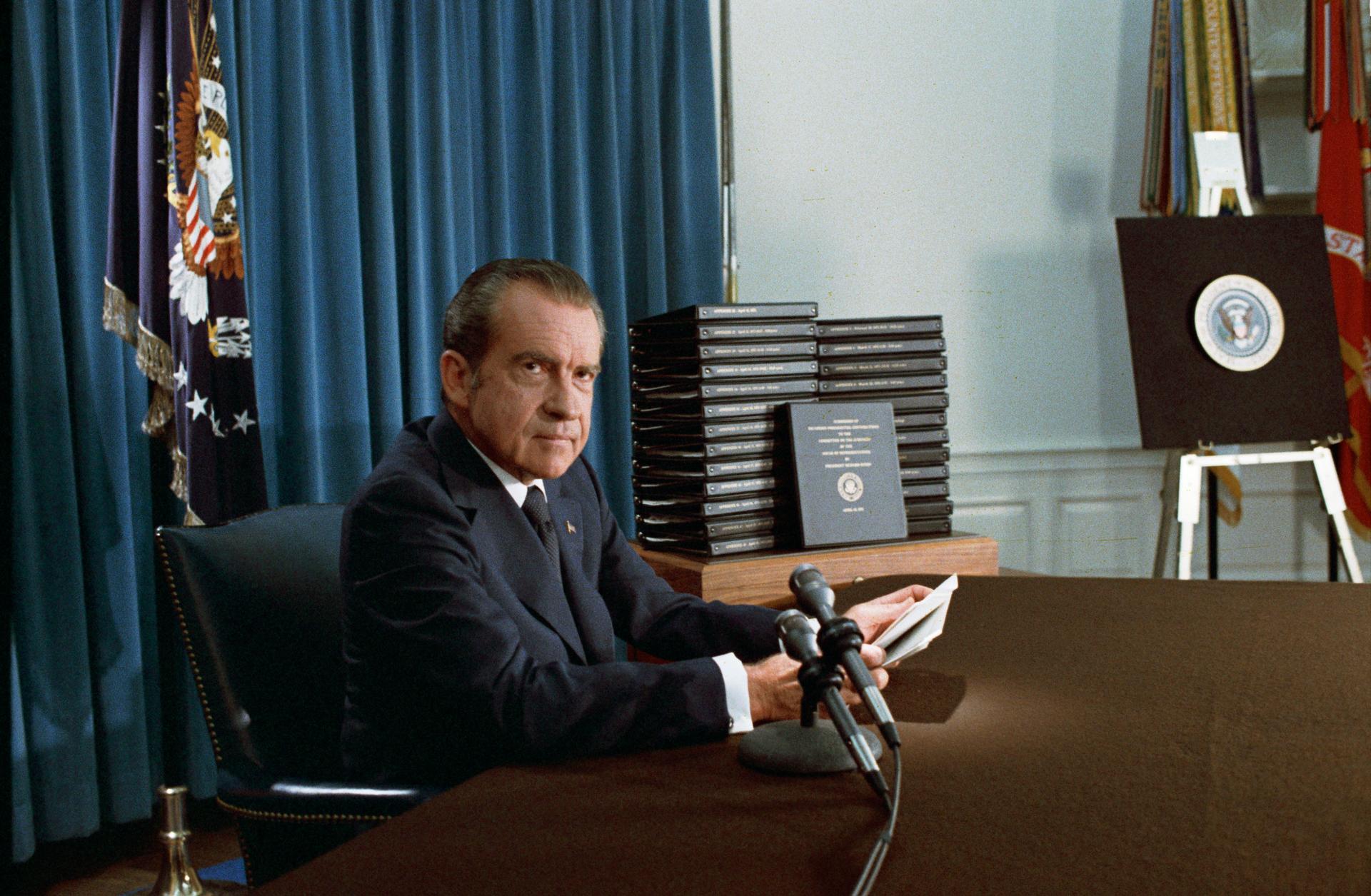Nixon announces the release of edited transcripts of the Watergate tapes on April 29, 1974. Less than four months later, he would resign from office.
It's been 40 years since President Richard Nixon became the only US president to resign from office, and historians are still working to decipher the more than 3,000 hours of audio tape the disgraced leader left behind.
Nixon himself installed the recording system that provided the evidence that toppled him. It was the latest technology at the time.
"The voice-activated part was pretty extraordinary," says Tom Blanton, the director of the non-profit National Security Archive. "Both [John F] Kennedy, and [Lyndon] Johnson had had taping systems, but it required them to press a button, and so some conversations didn't get recorded."
That's why archivists only have selections of the Kennedy's discussions of the Cuban missile crisis, but nearly complete collections of Nixon's conversations from the Oval Office, the cabinet room, his hide-away office and his telephone calls.
"Nixon's tapes were actually more honest," Blanton says. "As voice-activated, they even picked up the vacuum cleaner when the White House janitors would come in at the end of the day."
Nixon was excited about the installation of the Sony TC 800B — a new, compact reel-to-reel recorder.
"Even at times, it seems Nixon forgot he was being taped," Blanton says.
It wasn't the first instance of the White House installing recording devices. And Nixon's intentions were not unique.
"He knew that his memoirs were going to be worth some money, and they were going to be worth a lot more money if he had verbatim conversations in them," Blanton says. "Nixon thought these tapes would never see the light of day in anyone else's hands."
Nixon wasn't alone in adopting a new technology to create a historical record, and then trying to hide that record from the public. In 1986, after the Reagan White House acquired a prototype email system from IBM, National Security Council aide Oliver North and Rear Admiral John Poindexter e-shredded 5,000 incriminating emails in the Iran Contra affair.
So with each generation, are we moving toward records that are more transparent, and more complete?
"The Nixon tapes give you what the president said, but they don't give you a lot of the context to what other people were saying and doing, other people's motivations," Blanton says. "I think the email will ultimately give us almost a social network visualization of how policy gets made."
How that evidence is collected and shared comes down to a narrative about power and the presidency, according to Blanton.
"The Nixon assumption on power was he was in total control, that there was no real restraint, that if he claimed 'national security,' that could over-ride everything," Blanton says. "Ultimately we're going to have a very rich record of presidential policymaking. And the through-line narrative is that we as a society have decided to bring our presidents under some greater control."
That is, if historians can get hold of those emails.
Our coverage reaches millions each week, but only a small fraction of listeners contribute to sustain our program. We still need 224 more people to donate $100 or $10/monthly to unlock our $67,000 match. Will you help us get there today?
